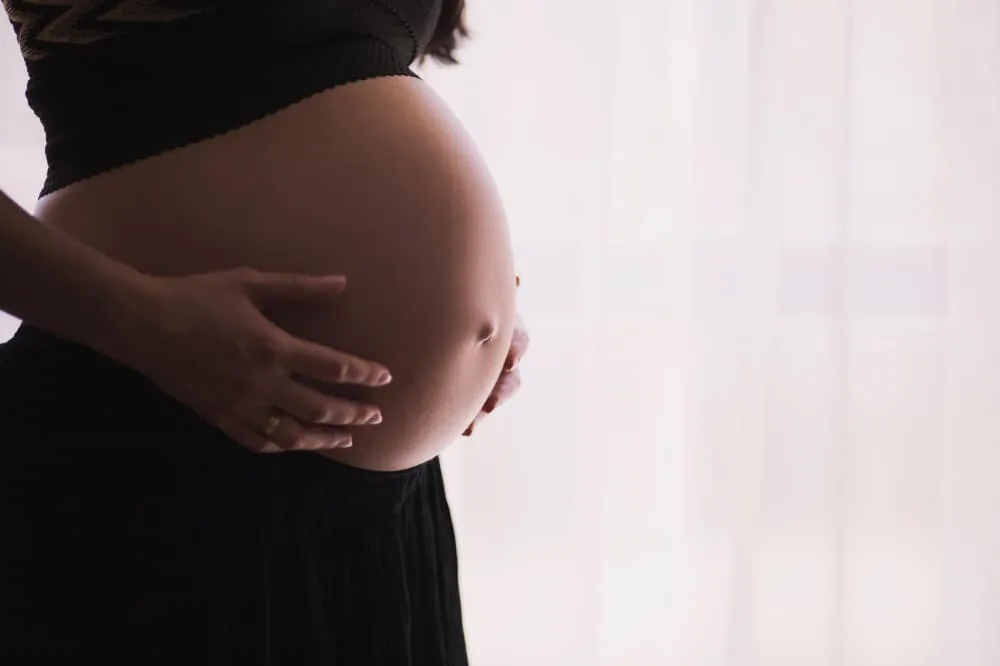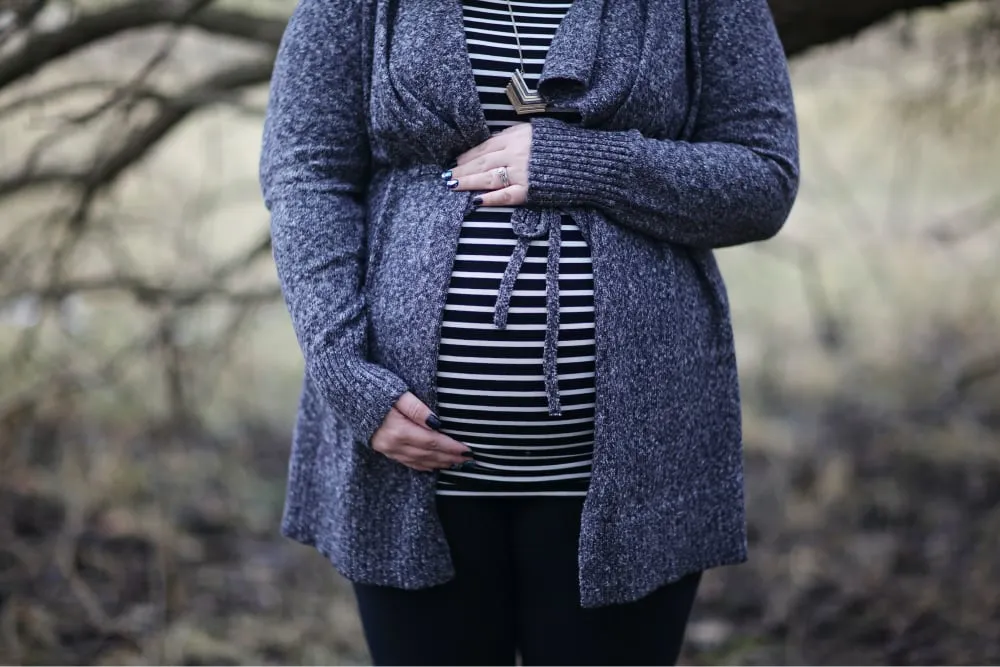What is pregorexia?
Pregorexia is an eating disorder that affects pregnant individuals as they attempt to control their body’s weight during pregnancy. Pregorexia is a serious condition that needs proper diagnosis and treatment by a professional. If left untreated, it can risk the health of both mother and baby.
The Diagnostic and Statistical Manual of Mental Disorders (DSM-5) does not include pregorexia at this time; however many categorize pregorexia as an Unspecified Feeding and Eating Disorder (UFED).
One common misconception regarding pregnancy-related eating disorders is that only those who have a preexisting eating disorder can fall into exhibiting pregorexia. In actuality, pregnant individuals with no history of eating disorders may develop pregorexia due to the hormonal changes in pregnancy, the stress of becoming a new mother, and the weight fluctuations during pregnancy.
Due to not being included in the DSM-5, pregorexia can be difficult for many to recognize and appropriately diagnose.
Diagnosing pregnancy-related eating disorders
The first step in diagnosing pregnancy-related eating disorders is appropriately assessing the pregnant individual’s physical and psychological state.
Pregorexia can be difficult to pinpoint because it does not always follow a typical pattern. However, one of the most noticeable changes that you may notice in a person suffering from pregorexia is a compulsive need to control their weight gain and partake in excessive exercise to try and maintain pre-pregnancy weight. (1)
Along with the compulsive need to control and maintain weight, the pregnant individual may begin to feel anxious and guilty about their weight gain. They may also start to feel a need to manage their food intake and avoid eating in certain social situations for fear of being judged by others.
Even if an expectant parent isn't displaying specific signs of pregorexia, they may still face challenges with other eating disorders. In cases of anorexia, bulimia, or another eating disorder, the diagnosis should follow the outlined DSM-5 criteria. (2)
Signs & symptoms of pregnancy-related eating disorders
Eating disorders are a serious health problem, and they are not just about food. Several factors contribute to eating disorders, including family history, the pregnant parent’s body, traumatic experiences, and other factors.
Pregnancy-related eating disorders can cause many psychological and physical complications to both the mother and baby. Some of the more common signs and symptoms of pregnancy-related eating disorders are: (6)
- Excessive exercise: The expectant parent may exercise so much that they become stressed and stressed out.
- Poor Nutrition Practices: The individual may often be skipping meals, but they may also be consuming more during moments of bingeing.
- Altered Body Image: The expectant parent may start to feel guilty about their changing body and feel a need to control it.
- Anxiety and Depression: Both are a common symptom among those suffering from pregorexia.
Effects of pregnancy-related eating disorders
During pregnancy, some women experience an increased risk of developing an eating disorder, especially during the second and third trimester as their hormones continue to change.
Pregorexia can lead to many problems during labor and delivery, including hemorrhaging, abnormal fetal heart rate patterns, premature labor, and even miscarriage.
Risks for mother-to-be
Aside from the complication listed above, if the expectant parent does suffer from a pregnancy-related eating disorder, they are at higher risk of: (6,7)
Short-term risks:
- Dehydration
- Gestational diabetes
- Severe depression
Long-term risks:
- Cardiac irregularities
- Difficulties nursing
- Postpartum depression
- Dry skin
- Brittle hair
- Anemia
- Malnutrition
Risks for baby
In addition to the risks that can occur to the mother-to-be, the baby faces a number of dangers as well. The baby can suffer from:
Short-term risks:
- Dehydration
- Respiratory distress
Long-term risks:
- Continued respiratory distress
- Feeding difficulties
- Chemical imbalances
- Cardiac irregularities
Related disorders
Pregnancy-related eating disorders are often related to other eating disorders, including:
- Anorexia
- Atypical anorexia nervosa
- Bipolar disorder
- Bulimia
- Binge eating disorder
- Generalized anxiety disorder
- Depression
- Obsessive-compulsive disorder
- Postpartum depression
- Post-traumatic stress disorder (PTSD)
Related disorders are often co-occurring, which means that their symptoms can intertwine with one another. Without proper pregorexia treatment for both, patients may struggle to achieve full recovery as the full extent of their conditions will not have been addressed.
Treatment of pregnancy-related eating disorders
There is no known cure for pregnancy-related eating disorders, but numerous treatments and therapies may offer some relief. However, with pregorexia treatment, you can experience recovery from the disorder. It's important to know that some parents may not feel comfortable talking to a food therapist or other mental health professional about their condition.
That's because many individuals feel that they have done something wrong and that it was their body's fault for not staying thin enough. If this is the case, the expectant parent may feel ashamed and embarrassed and refuse to seek professional help.
Other times, people may not realize that they have a problem, and some may be in denial about their eating disorder.
Therapies for pregorexia and other pregnancy-related eating disorders
Treating pregorexia with therapy is a helpful way to address underlying psychological beliefs that may drive disordered eating behaviors. Working with a therapist to address the root cause of triggers for pregorexia will increase the chances of proper healing.
Therapy offers a lot of help to a mother-to-be who is struggling with a pregnancy-related eating disorder. It may include:
- Behavioral modification
- Cognitive behavioral therapy
- Family therapy
- Group therapy
- Nutritional counseling
- Psychiatric counseling
Medications for pregorexia and other pregnancy-related eating disorders
No known drugs are prescribed to combat pregnancy-related eating disorders. While some antidepressant drugs can effectively reduce some of the symptoms associated with most eating disorders, they are sometimes indicated even in pregnancy due to the potential of untreated illness on the mother and baby.
Understanding pregnancy-related eating disorders
Pregnancy-related eating disorders have many commonalities with other eating disorders. This fact makes it difficult to determine and understand the pregnant woman's eating disorder.
What's even more difficult is that pregnant individuals may have trouble identifying their symptoms. One of the many reasons for this is that pregnancy and parenthood can cause a dramatic change in a person’s beliefs about themselves, their bodies, and their eating habits.
Living with pregnancy-related eating disorders
As an unspecified eating disorder, pregnancy-related eating disorders like pregorexia present many of the same symptoms associated with other eating disorders. Unfortunately, pregorexia does not meet the full criteria outlined in the DSM-5. (3)
These symptoms become even more problematic when pregnant individuals develop pregorexia, as it no longer pertains to just the patient but their unborn child as well. When the expectant parent isn't properly caring for their body, inside and out, the baby may be vulnerable to health complications.
If not taken care of proactively, pregnancy-related eating disorders can lead to miscarriage, stillbirth, premature labor, and even the death of both the parent and the baby. (4)
But, the most important thing to remember is that full healing from pregnancy-related eating disorders is possible with the right care. Both the mother and baby can safely navigate pregorexia with a dedicated support system.
Talking to other expectant parents can help, but these conversations must be handled carefully. It's important that these conversations are brought up with sensitivity and respect, and that the expectant parent-to-be feels comfortable talking about their condition.
One of the best ways parents can cope with pregnancy-related eating disorders is by finding a support group or speaking with a therapist.
Try to remember that the body’s changes during pregnancy are normal. Your body grows, hormones shift, and emotions run wild.
Your body will look different, and you should not feel guilty about these changes, as you are bringing new life into this world! For those parents that experience these feelings of guilt and are dealing with pregnancy-related disorders, help is available.
History of pregnancy-related eating disorders
While individuals have suffered from pregnancy-related eating disorders for years, the DSM-5 has not yet included pregorexia as an official disorder. The term was first made popular in mainstream media in 2008 on the television program "The Early Show" and Fox News. In these instances, pregorexia described women who workout and diet to great extremes to maintain what she sadly thought was the “perfect” baby body. (1)
New York Magazine was the first publication to use the term pregorexia in 2004 when they published a piece titled "The Perfect Little Bump," which detailed the lives of upscale New York City women who also were anxious to maintain the "perfect" pregnancy body. (5)
Pregorexia in pop culture
In more recent years, pregorexia is being used as a way to shame celebrities and other well-known individuals who don’t put on the expected weight that the general public believes to be “normal” for a standard pregnancy. (9) This shame is only further perpetuated by coverage of people in the media trying to “lose their baby weight” or being judged for gaining weight in the first place.
When reading about the standards we hold pregnant women against, especially female celebrities, it is critical to remember that healthy bodies come in various shapes and sizes, including pregnant bodies. There is no “normal” amount of weight someone should put on during pregnancy, and it's unfair to put that pressure on parents to be.
How to help someone with pregnancy-related eating disorders
Individuals experiencing eating disorders often feel embarrassment or shame, so finding ways to talk in a non-judgmental, compassionate, non-critical manner is vital.
If someone is struggling with an eating disorder, it's essential that the people around them be understanding and supportive. One of the best ways to help is to encourage your loved one to seek professional help at a pregorexia treatment program.
At Within Health, we understand the treatment needs of someone with an eating disorder are as unique as the people struggling with them. Our admissions team will work with you to establish an individualized care plan for pregorexia, and any co-occurring conditions. Call our team today to begin your recovery.







